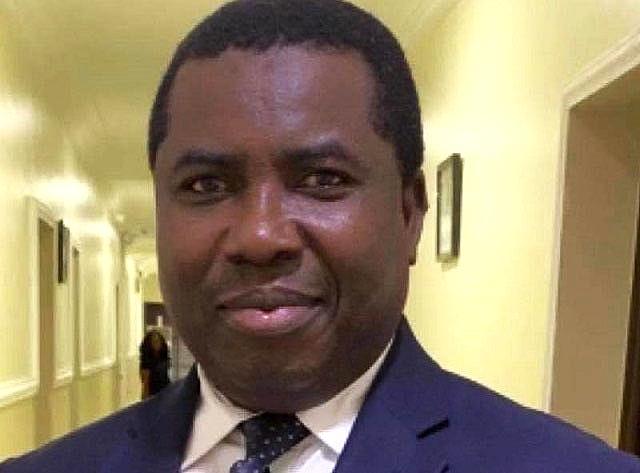When Gbadebo Rhodes-Vivour mounted the podium in Alimosho, Lagos, on Saturday, 6th September,2025 to proclaim his defection from the Labour Party (LP) to the African Democratic Congress (ADC), it was more than a routine political switch. The moment carried echoes of both youthful zeal and political restlessness, as the 2023 Lagos governorship candidate explained his move as a necessary decision toward uniting Nigeria’s fractured opposition ahead of the 2027 elections.
“This is a coalition that is meant to rescue Nigeria,” he declared before a cheering crowd. “We cannot afford to divide the opposition going into 2027. We must come together, united through a robust coalition that will stand a chance to deliver this country.”
According to Rhodes-Vivour, the decision was about survival and strategy. To the Labour Party, it was hasty, ill-timed, and avoidable.
Gbadebo Rhodes-Vivour’s political story is closely tied to the wave of enthusiasm that swept the Labour Party during the 2023 elections. The youthful architect-turned-politician, with his clean image and bold rhetoric, became the face of a new generation of Lagosians eager to challenge the dominance of the All Progressives Congress (APC).
His performance in the 2023 Lagos governorship election, finishing second and rattling the ruling party’s grip on Nigeria’s commercial capital, cemented his status as a rising political force. But it also placed him firmly in the shadow of Peter Obi, LP’s presidential candidate, whose “Obidient” movement galvanized millions of Nigerians.
Observers say Rhodes-Vivour’s defection may reflect a desire to step out of that shadow and build his own political base within a broader coalition.The Labour Party, however, views his defection as a needless distraction. In a strongly worded statement, the party’s interim National Publicity Secretary, Tony Akeni, accused Rhodes-Vivour of “jumping the gun.”
“By hastily jumping boats, Vivour has shown that he is still to learn some imperative essentials in his young political journey. Politicians who genuinely mean to serve their people should learn to hurry slowly,” Akeni said.
The LP’s frustration is not hard to understand. For a party that made significant inroads in 2023 but has since struggled with internal disputes and questions about structure, Rhodes-Vivour represented one of its brightest prospects. His exit, even if polite, risks sending a signal of fragmentation at a time when the party needs cohesion.
At the centre of this tension lies a crucial strategic question: How should the opposition organize for 2027? Peter Obi has spent the past year engaging opposition figures and exploring alliances, but he has carefully avoided leaving the Labour Party. His approach suggests that opposition parties can maintain their identities while cooperating under a loose umbrella, something, akin to a coalition of equals.
Rhodes-Vivour, on the other hand, has opted for an early commitment to a specific platform, the ADC, believing that a stronger, united bloc must take shape now rather than later.
Analysts are divided. Some see his move as a premature gamble, pointing out that Nigeria’s history is littered with fragile coalitions that collapsed under the weight of personal ambition. Others argue that early alignment could give Rhodes-Vivour a head start in shaping the conversation around 2027, positioning him as more than a one-election wonder.
Beyond Rhodes-Vivour, his defection highlights the broader challenges facing Nigeria’s opposition. Since the return to democracy in 1999, the ruling party, first the PDP, now the APC, has thrived partly because opposition forces have struggled to unite. The 2015 merger that birthed the APC remains the most successful opposition coalition in Nigeria’s history, and many wonder if lightning can strike twice.
The Labour Party’s fear is that splintering its new urban youth base could weaken momentum, while the ADC-led coalition risks becoming another alphabet soup of political parties without real grassroots strength.
Yet, the consensus across opposition camps is clear: no single party can unseat the APC alone in 2027. Whether through Obi’s slow burn coalition building or Rhodes-Vivour’s bold leap into the ADC, the opposition must find a formula that convinces Nigerians it can govern more effectively than the ruling party APC.
As for Rhodes-Vivour, the path ahead is fraught with both promise and risk. His defection may alienate loyal Obidient supporters who see his rise as inseparable from the Labour Party’s 2023 momentum. At the same time, it could establish him as a young leader willing to take bold risks in pursuit of national change.
His choice also underscores a broader truth about Nigerian politics: ambition often collides with loyalty, and survival frequently requires a careful balancing act between principle and pragmatism. As the countdown to 2027 begins, more defections and realignments are expected. Rhodes-Vivour’s move may be the first tremor in what could become a major political earthquake. Whether it proves prophetic or premature will depend on how the ADC-led coalition evolves and whether figures like Obi ultimately decide to join or chart their own paths.
For now, the 40-year-old politician has made his choice: to step outside the Labour Party’s orbit and stake his future on a new platform. In a country where political loyalty is fluid and coalition-building is as much about survival as ideology, his gamble may yet pay off or leave him stranded on the margins of Nigeria’s turbulent political theatre. One thing is certain, Gbadebo Rhodes-Vivour has forced Nigeria’s opposition to confront uncomfortable questions about unity, ambition, and the fragile art of coalition politics.






